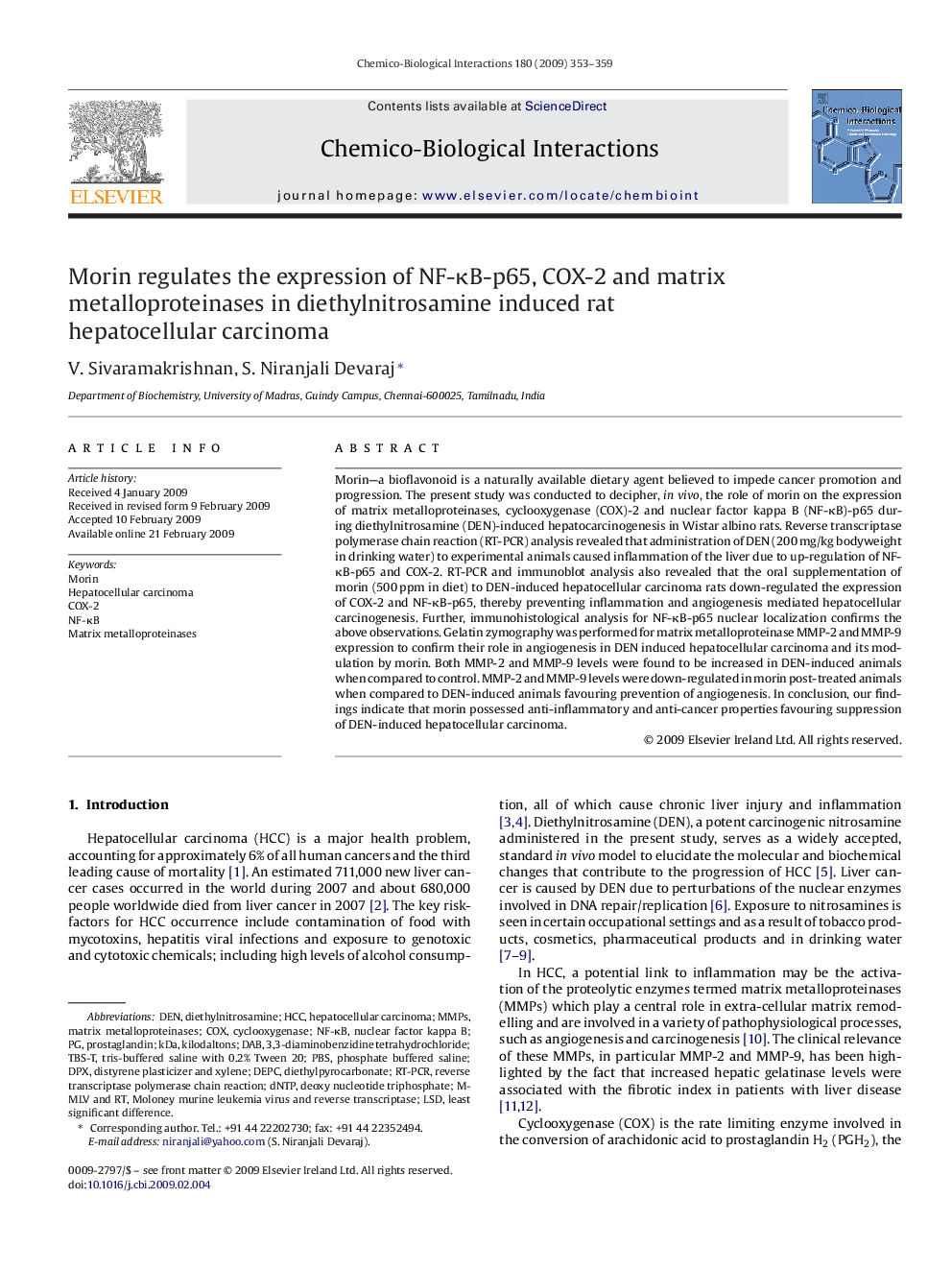| Article ID | Journal | Published Year | Pages | File Type |
|---|---|---|---|---|
| 2581446 | Chemico-Biological Interactions | 2009 | 7 Pages |
Morin—a bioflavonoid is a naturally available dietary agent believed to impede cancer promotion and progression. The present study was conducted to decipher, in vivo, the role of morin on the expression of matrix metalloproteinases, cyclooxygenase (COX)-2 and nuclear factor kappa B (NF-κB)-p65 during diethylnitrosamine (DEN)-induced hepatocarcinogenesis in Wistar albino rats. Reverse transcriptase polymerase chain reaction (RT-PCR) analysis revealed that administration of DEN (200 mg/kg bodyweight in drinking water) to experimental animals caused inflammation of the liver due to up-regulation of NF-κB-p65 and COX-2. RT-PCR and immunoblot analysis also revealed that the oral supplementation of morin (500 ppm in diet) to DEN-induced hepatocellular carcinoma rats down-regulated the expression of COX-2 and NF-κB-p65, thereby preventing inflammation and angiogenesis mediated hepatocellular carcinogenesis. Further, immunohistological analysis for NF-κB-p65 nuclear localization confirms the above observations. Gelatin zymography was performed for matrix metalloproteinase MMP-2 and MMP-9 expression to confirm their role in angiogenesis in DEN induced hepatocellular carcinoma and its modulation by morin. Both MMP-2 and MMP-9 levels were found to be increased in DEN-induced animals when compared to control. MMP-2 and MMP-9 levels were down-regulated in morin post-treated animals when compared to DEN-induced animals favouring prevention of angiogenesis. In conclusion, our findings indicate that morin possessed anti-inflammatory and anti-cancer properties favouring suppression of DEN-induced hepatocellular carcinoma.
